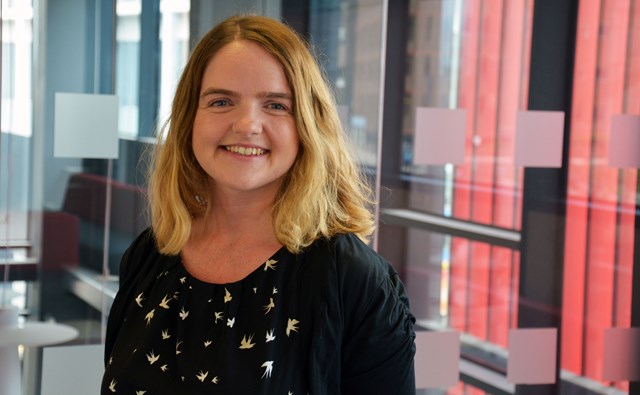Deloitte and Fraser of Allander Institute to produce analysis on opportunities in energy transition and digital transformation

Mairi Spowage
Scotland could do more to capitalise on the economic growth opportunities presented by the energy transition and digital transformation, according to new research by the Fraser of Allander Institute supported by Deloitte in Scotland.
The research considers the drivers of productivity in Scotland and where improvements could be made to grasp emerging opportunities. It shows that while Scotland has made significant progress in decarbonising the energy system, which has been accompanied by a growth in jobs in renewables, there are still huge opportunities in Scotland amid the need to decarbonise homes, buildings and transport system.
The research also considers how Scotland’s public assets could be better leveraged to promote growth and improve productivity. With the public sector owning approximately 10% of the country’s land and 23,000 of its buildings, the paper suggests a bold approach is key to untapping significant potential and stimulating supply chains and job creation.
On the energy transition, Lesley McEwan, Director, Infrastructure & Capital Programmes at Deloitte in Scotland, said: “Investment is of course crucial, but while capital budgets are constrained, we need to consider what other levers the public sector can pull to maximise Scotland’s potential in the energy transition.
“Public sector land and buildings could play a pivotal role in the development of broader policy initiatives, like the development of heat networks or data centres.”
On AI and digital innovation, Angela Mitchell, Senior Partner for Scotland at Deloitte, said: “Scotland punches above its weight when it comes to qualifications and training, and yet businesses in many sectors struggle to find the talent they need. So, although we’re a highly qualified nation, there are thousands of ‘economically inactive’ people, and we can’t match the skills we have to the jobs that need to be filled.
“This is where AI could have a phenomenal impact, if we use it in the right way – rather than replacing workforces, it could free up skilled workers to do their jobs better and, ultimately, achieve more. The UK Government has signalled its intention to do this with its own civil service, and it’s something Scotland should be following suit on.
“Renewable energy and digital technology are two arenas where Scotland should be ahead of the curve. But the public, private and academic sectors must come together, and be prepared take bold steps – using all the tools at our disposal to properly leverage our wealth of knowledge and experience in these areas. If we get it right, we could create a future where Scotland’s energy and digital prowess fuels global demand, while driving economic prosperity at home.”
The paper launches a year-long collaboration between the Fraser of Allander Institute and Deloitte, called Driving Growth: Innovation and Sustainability in Scotland. The series will see the two organisations collaborate to produce in-depth research, discussion and analysis on sustainable economic growth in Scotland, with a focus on the energy transition and AI and digital innovation.
Guest experts will feature throughout the series, which will include further research and podcast discussions.
Professor Mairi Spowage, director of the Fraser of Allander Institute, added: “We’re very excited to be working with Deloitte on this new research series, exploring the opportunities for sustainable economic growth in Scotland through these two massive growth areas, the energy transition and digital adoption.
“The possibilities are vast, and we feel strongly about the importance of business, government and academia coming together to tackle these issues, so we look forward to doing just that over the next year.”
The full paper, and a podcast discussion between Mairi Spowage, Angela Mitchell and Lesley McEwan on this topic, are available here.









